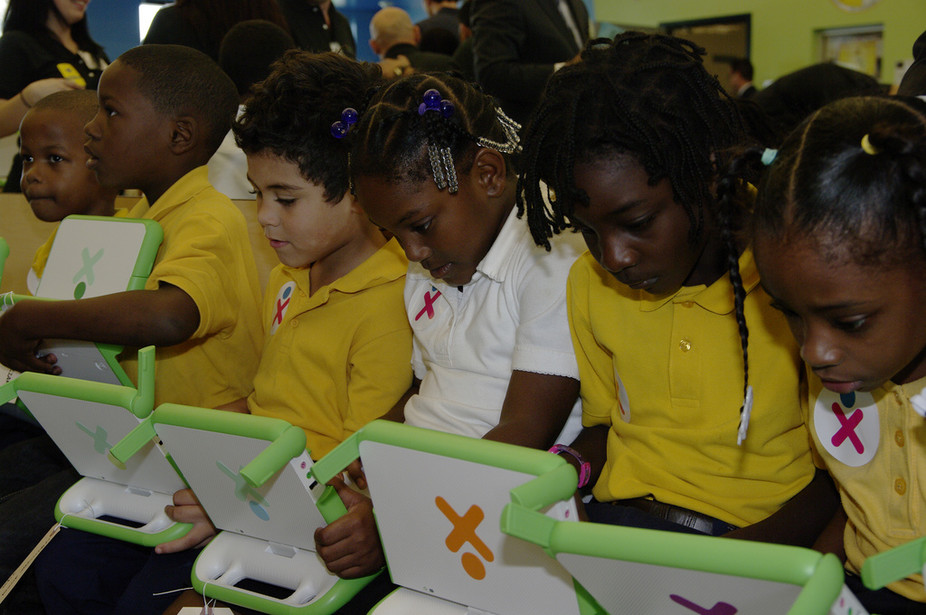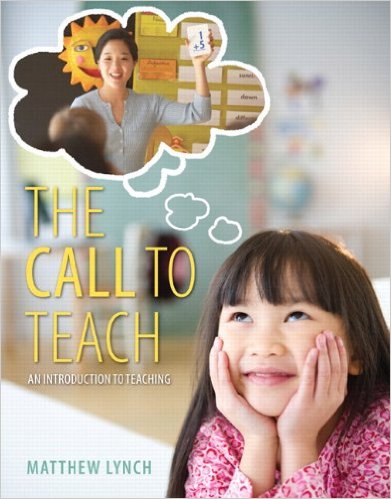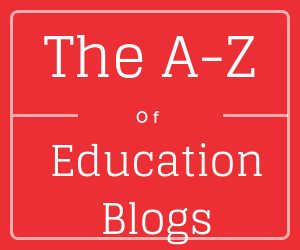Why schools should provide one laptop per child

Binbin Zheng, Michigan State University and Mark Warschauer, University of California, Irvine
A recent international study by the Organization for Economic Cooperation and Development found no positive evidence of impact of educational technology on student performance.
It did not find any significant improvement in reading, math or science in countries that heavily invested in technology to improve student achievement. In fact, the report found that technology perhaps even widened the achievement gaps.
Does this mean we should abandon attempts to integrate technology in schools?
We are researchers of technology and learning in K-12 environments, and our research suggests this would be shortsighted.
Impact of one-to-one laptop programs
For the last 10 years, our research team has been investigating what are called “one-to-one” programs, where all the students in a classroom, grade, school or district are provided laptop computers for use throughout the school day, and often at home, in different school districts across the United States.
The largest one-to-one laptop program in the world is OLPC (One Laptop per Child), which mainly targets developing countries, with the mission “to create educational opportunities for the world’s poorest children.” In the United States, the Maine Learning Technology Initiative (MLTI) launched a one-to-one laptop initiative in fall 2002, which made Maine the first state to use technology to transform teaching and learning in classrooms statewide. Later, these programs were extended to other school districts as well.
In addition to our own extensive observations, we conducted a synthesis of the results of 96 published global studies on these programs in K-12 schools during 2001-2015. Among them, 10 rigorously designed studies, mostly from the U.S., were included, to examine the relationship between these programs and academic achievement. We found significant benefits.
We found students’ test scores in science, writing, math and English language arts improved significantly.
And the benefits were not limited to test scores.

Laptop use led to significant benefits for students.Tim & Selena Middleton, CC BY
We found students with laptops wrote more frequently across a wider variety of genres. They also received more feedback on their writing. In addition, we found they edited and revised their papers more often, drew on a wider range of resources to write, and published or shared their work with others more often.
Student surveys, teacher interviews and classroom observations in these studies revealed that students with access to laptops worked more autonomously and gained experience in project-based learning. This allowed them to synthesize and critically apply knowledge.
For example, researcher Chrystalla Mouza found that elementary school students with access to laptops were able to create electronic storybooks and publish reports in language arts classrooms.
One-to-one laptop programs also enhanced students’ 21st-century skills – skills needed in an information age – such as the ability to locate and use internet resources. Students also improved their collaborative learning skills – that is, they were more capable of working collaboratively with others.
Research led by Deborah L. Lowther at University of Memphis found that when students were given a problem and related answer to consider, students with laptops exhibited higher problem-solving skills than those in the comparison group.
A closer look at the OECD report also reveals that students in the United States performed particularly well on technology-based tasks such as online navigation, digital reading and using computers to solve math problems.
Can laptop use reduce educational gap?
However, our study did not find firm evidence on whether these one-to-one laptop programs helped lessen the academic gap between academically advantaged and disadvantaged students.
Earlier studies have found that laptop programs could help shorten the achievement gap between low-income students and their peers. We did not find such positive evidence in all programs.
One possible explanation is that difficulty in using technology sometimes places an extra load on already challenged students. In contrast, wealthier students are usually more tech-savvy so they can maximize the benefits of using computers to support learning.
Not all laptop programs are effective
One issue here is that not all programs are successful. In our study, although most programs were successful, there were some stark failures as well.
These tended to be in school districts that treated computers like magical devices that would solve educational problems merely through their distribution, without sufficient planning on how they could best be deployed to improve learning.

Some schools phased out their laptop program. Mere access to a computer does not improve learning. Schoolchildren image via www.shutterstock.com
Some of these schools, after observing no progress with laptops, decided to phase them out. For example, Liverpool Central School District, a public school district in a suburban community near Syracuse, New York, decided to drop the laptop program from fall 2007.
A school district in Philadelphia had to abandon its program after being sued over its use of laptop webcams to capture pictures of students at home. The district claimed it was an effort to track down missing laptops.
For schools and classrooms that are already poorly organized, merely having access to a computer connected to the internet will not improve learning. However, for classrooms that focus on improving students’ writing, analysis, research, problem solving and critical thinking, those same internet-connected computers could be invaluable tools.
Technology to train future citizens
Perhaps we could learn a lesson from the business world. When computers were first introduced into corporations, it took a number of years to increase productivity.
Today it is hard to imagine any field of commerce or knowledge production succeeding while shunning computers.
Well-organized programs that make individual computers available to students are already getting excellent test score results. Such programs are critical for helping students develop necessary skills for the future. These programs deserve our support.
![]()
Binbin Zheng, Assistant Professor, Michigan State University and Mark Warschauer, Professor of Education and Informatics, University of California, Irvine
This article was originally published on The Conversation. Read the original article.






